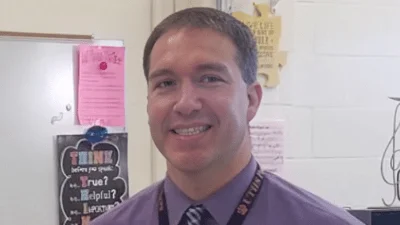Rep. Tony McCombie (R-Savanna) made it clear that there is more to Illinois than Chicago at a recent House Transportation: Regulation, Roads and Bridges Committee hearing.
At the hearing, which concentrated on the cost of maintaining infrastructure, McCombie made sure downstate Illinois remained part of the conversation.
“This is all wonderful in the things we are talking about in Chicago and the surrounding areas, but Illinois is a very big state and we have a lot of infrastructure issues to think about,” McCombie said.

Illinois Department of Transportation (IDOT) Secretary Randall Blankenhorn started off the panel of witnesses, detailing the “vital role” that transportation plays in the economic prosperity of Illinois.
“It is the third largest interstate system in the country,” Blankenhorn said. “We are served by all seven class one railroads. Nearly $3 trillion worth of freight moves through our system every year with almost half of it by truck and nearly 40 percent by rail.”
While Blankenhorn said IDOT serves 2 million passengers annually in the inner-city rail program and noted there are 57 different transit agencies across the state along with 827 aviation facilities, he stressed that “the Illinois River is the only connection between the Great Lakes and the Gulf of Mexico.”
McCombie reminded Blankenhorn there is another major waterway.
“We have the Mississippi River, and we do have a rail,” McCombie said, adding there are “miles, miles and miles” elsewhere in the state that need to be considered when discussing the cost of Illinois infrastructure. “We need your help to figure out a way, how else we are going to do that, because we can’t do it alone and we need your support in other avenues to figure out the finances."
Blankenhorn began his presentation saying “transportation is what Illinois is all about and in many ways it is the reason that we exist.” He added that the current six-year program is based almost entirely on maintaining existing assets.
“Six years from now, assuming the current levels of investment with the current levels of deterioration is somewhat striking,” Blankenhorn said. “State maintained mileage will drop from 83 percent in good condition to 65 percent acceptable, and our bridges will drop from 90 to 87 percent. That is a direction we can no longer go.”
And that is not considering transit and airports, according to Blankenhorn, who said those means of transport raise significant problems in different ways, especially since there is no dedicated pay-as-you-go state funded resources, rather federal programs are the only financial resource for repair.
Blankenhorn said since speaking to stakeholders, IDOT is looking at asset management in a different manner, no longer considering the worst-first method.
“We need to stop doing that and we need to get to a point where we are investing in a life cycle of a project,” Blankenhorn said, adding IDOT is also considering new funding mechanisms including private-public partnerships. “We look forward to continuing to work with the General Assembly to pass and authorize legislation for each of these.”
McCombie said it’s not just about “what piece” is more important in the state of Illinois.
“You do have to remember, God bless Chicago, but there is more to this state than Chicago, and I just needed to put that on the record to remind you all of that,” McCombie said.



 Alerts Sign-up
Alerts Sign-up